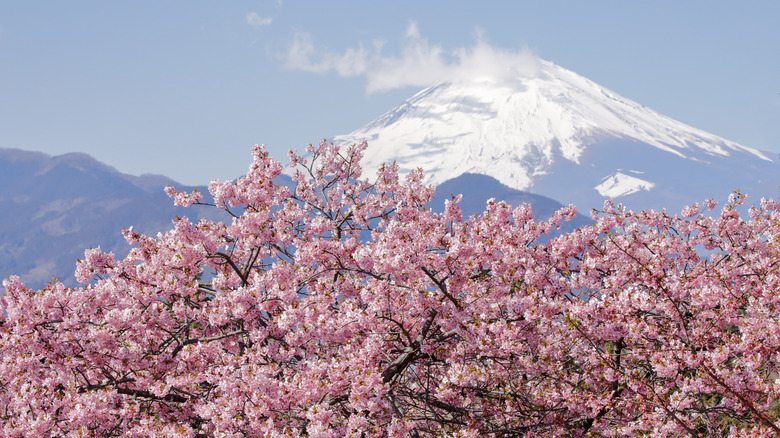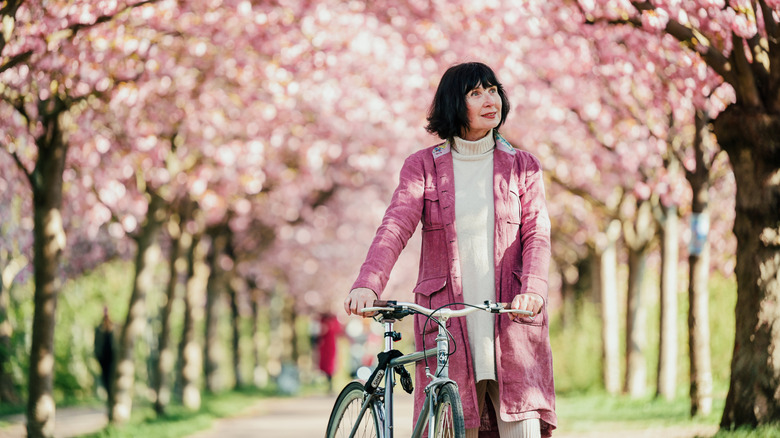The Real Reason Cherry Blossoms Are Blooming Earlier And Earlier
Cherry blossom season is one of the most enchanting times to visit Japan, but these days you'd have to be lucky enough to even catch the sakura pink flowers in full bloom. This natural spectacle is happening earlier and earlier each year, making it harder to predict peak blossom periods. This isn't just a random shift. It's actually due to warmer spring temperatures caused by climate change. And, no, it's not just Japan — earlier blooms are also happening in the U.S. in cities like Washington D.C., and you might notice the change if you've planted a cherry blossom in your yard.
The blossoming of these sacred trees has been tracked and recorded since the 9th century in Kyoto, a city in the Kansai prefecture of the Japan. Historical records collected by the Osaka Prefecture University show that while peak bloom dates can vary from year to year, there is a prominent long-term change that is noticeable in these trends. "Since the early 20th century, the combined effects of urbanization and higher temperatures due to climate change have gradually moved the peak blossom earlier in the year," according to Our World In Data. Meanwhile, Daisuke Sasano, a climate risk management officer at the Japan Meteorological Agency told TIME that Tokyo's average bloom start date has shifted up by 1.2 days every 10 years since 1953.
You may be thinking what the big deal is, but the shifting blooming time does have ripple effects. Earlier and unpredictable blooms can have a toll on cities that rely heavily on cherry blossom tourism. They're also detrimental to local ecosystems.
A tragically beautiful warning sign from mother nature
Cherry blossoms aren't just trendy trees; they're deeply rooted in the Japanese culture, where they symbolize life and nobleness. Now, they represent something more urgent. The earlier blossom dates serve as a reminder of the negative impact we, as humans, have on this world and show how these impacts are reshaping nature's rhythms.
Katharine Hayhoe, chief scientist of The Nature Conservancy and a distinguished professor at Texas Tech University, told CBS News (via YouTube) that cherry blossoms are great indicators of climate change. She added that these earlier blooms "can actually lead to a mismatch between pollinators and bird-species that depend on the time of the year ... then that can actually impact the ecology of a system as well." Bees and pollinators rely and thrive on the flowering of perennial plants in the spring, and when they miss their already narrow windows, food chains can waver, disrupting the ecosystem.
The beauty of the sacred sakura flowers remains, but their message has changed. Now, they give a warning and we can no longer afford to look the other way.

